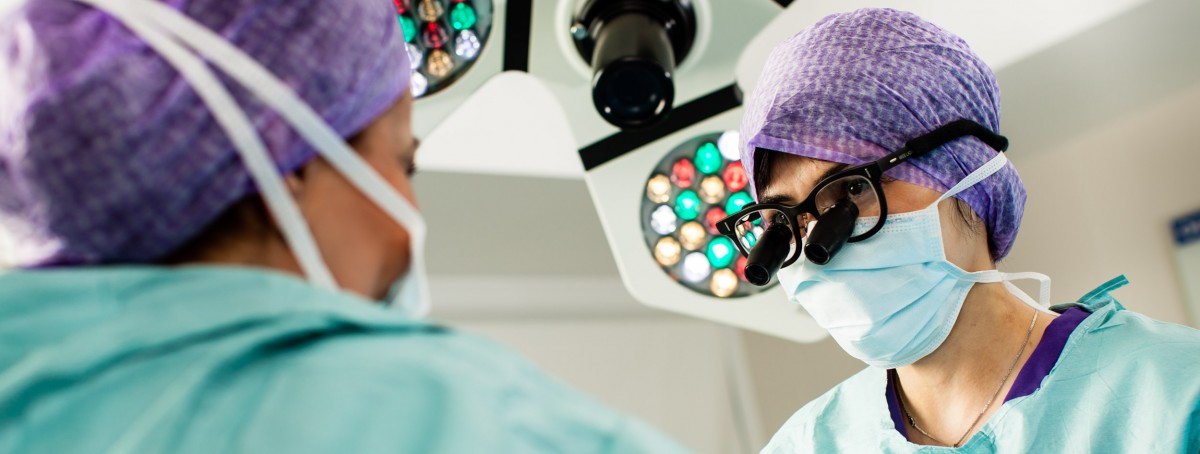Recovering from surgery will be greatly dependent on what type of surgery you’ve had, but the post operation procedure can be generalised into the processes outlined below. Take a read if you are having a surgery soon to get an idea of what to expect.
Recovering from surgery
Depending on what anaesthesia you were under, following surgery you will be moved to:
a) Your ward if you have been under local anaesthetic.
b) The Recovery Room if you have been under general anaesthetic, or were given an epidural.
You may feel hazy, or confused to begin with and this is completely natural as the effects of the anaesthetic continue to wear off. Your mouth may feel dry and your throat may be sore. It is also natural to vomit as you come around. Your nurse may offer medicine to combat the nausea.
As you continue to recover from the anaesthesia, your blood pressure and heart rate may slowly and naturally either increase or decrease. If you begin to experience either of these common, but potentially dangerous post-surgery changes then nurses will be on hand to do one of two things:
a) In the event of an increase, it is likely that you will be given intravenous medications to lower your blood pressure.
b) In the event of a decrease, it is likely that you will be given an increase of fluids to bring your blood pressure up.
Your blood pressure will be monitored either manually by a nurse, or by using an automatic cuff that squeezes tightly on regular intervals.
It’s normal for blood and fluid to be produced when any tissue is cut. Wound drains are usually put in place to remove this excess fluid, usually one or two. They will be removed after a day or two, if you are staying overnight following your surgery.
Any wounds you have as a result of the surgery will be either stitched, clipped using staples or held in place using Steristrips which are literally strips of sticky medical tape. Most stitches can be absorbed by the body once their purpose has been met, but other more heavy-duty stitches will have to be removed in due course.
Finding out how it went
When you are back on your ward you will be told how your operation went. You will be debriefed on:
- The success of the operation, and if everything went as expected
- What side effects you may feel as a result of the operation
- A time frame on being released from hospital post-surgery
- How you may expect to feel when you are back home
It’s important that you ask as many questions as possible to gain a full understanding. You will be given plenty of information resources, but nothing beats asking there and then. The nurses will be more than happy to help.
If your operation was is small one, and you are only at the hospital as a day patient, it is likely that you will be able to go home that evening. In most cases you will be prohibited from driving, and a relative or friend will need to collect you.
Recovering from surgery
There will always be a degree of pain after a surgical procedure. The best thing you can do is tell your nurse as soon as you start feeling significant pain, and they can administer the correct medication to help you. Painkillers usually take around 20 minutes to start working.
Lying in bed for too long can cause blood to pool, and clot in your legs. Doing leg exercises can prevent this, and you can find a few examples of bed-bound leg exercises here.
If you are instructed to take a prolonged period of bed rest following your surgery, you may be given special stockings that aid blood circulation. Blood-thinning injections are also an option.
There are pieces of research that highlight the need to get out of bed as early as possible. Some hospitals now offer enhanced recovery programmes but these are for major surgical procedures.
It’s important to plan ahead and make arrangements for the days following surgery. If you are confined to bed rest, ensure that you have the appropriate care on hand, especially for older people. Don’t be embarrassed to ask for help. Your hospital will make arrangements for the necessary essentials such as wheelchairs or crutches, should you need them.
Being discharged from hospital
Before you leave the hospital you may have an appointment with a hand and wrist physiotherapist. They will advise on the types of exercises you will need to carry out and part of your rehabilitation following the surgery.
Advice will also be given about how to care for any wounds you may have as a result of the surgery. You’ll be given information resources on how to dress the wound, painkiller doses and in some cases how to use a wrist splint.
It is important to remember that each hospital has a different policy when it comes to discharging patients. Your discharge will be dictated by how quickly your health has improved post surgery, and what level of support you will need when you return home.
Tips to improve your recovery post surgery
Here are some tips to follow when looking to make a quick recovery after a surgery:
- Follow your doctor’s instructions to the letter. Don’t disregard certain instructions because you think they’re tedious.
- Attend all of your follow-up appointments. While you may feel like you’re fully mended, your physician will often use these appointments to check for things you are not.
- Abstain from any activities that may heighten your risk of infection, especially if you are nursing a wound.
- Keep an eye on your wound, taking a look at the incision numerous times a day. You will pick up on an infection early, this way.
- Eat! Many people lose their appetite after a surgery but you have to keep yourself fed and watered. It fuels your body to heal.
- Control your pain by taking the prescribed dosage of painkilling medicine.
Hopefully this helps you prepare for any future surgery you may be having. If you have any questions or concerns you are more than welcome to get in touch, we would be happy to help.
To let others know about the care you received, you can find your hospital and leave a review.
Read the next article: The Most Common Hand and Wrist Injuries & Conditions


